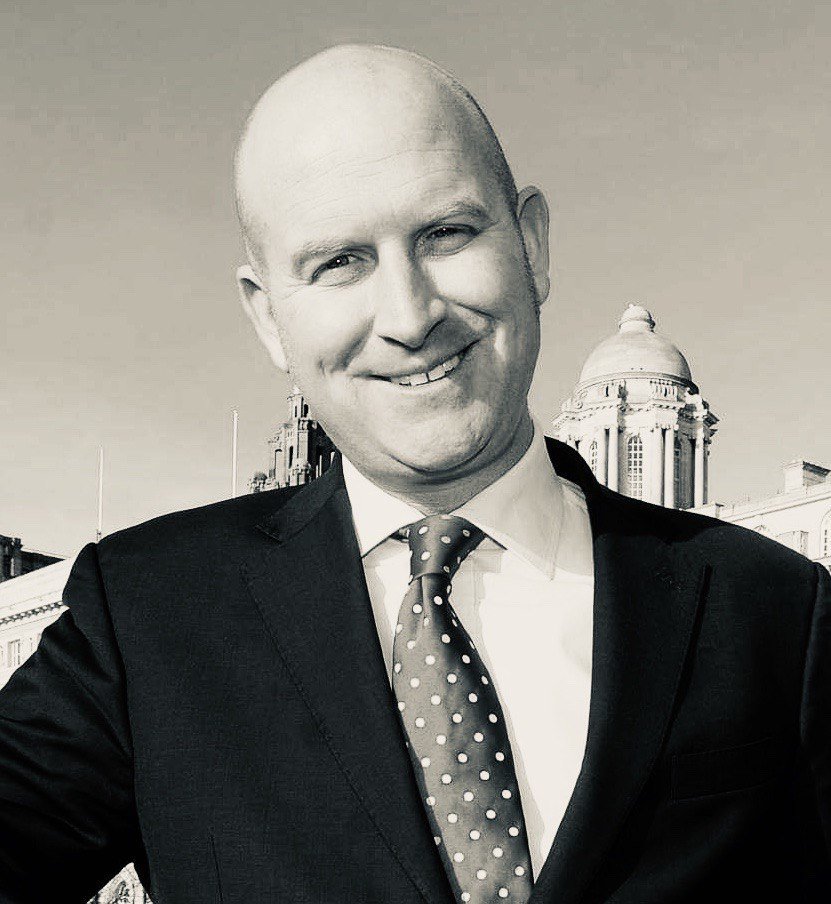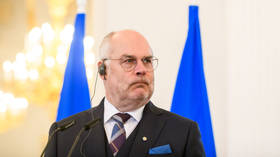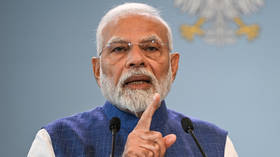‘What was the difference between Sweden and the rest of the West on Covid? We trusted the people to have common sense’

As the world slowly recovers from the effects of the pandemic, Peter Lundgren, a Swedish MEP, talks exclusively with RT.com about how Sweden dealt with Covid-19 and why the country refused to lock down.
When the Covid-19 pandemic began in earnest in spring last year, nearly all Western countries locked down. The public were asked to stay home, not go to work or visit relatives, and to only leave their homes to do essential shopping. Workplaces, schools, non-essential shops, restaurants, and bars closed. In some countries, curfews were also imposed, and people could be arrested simply for going on to the streets. Western governments argued that they did this to keep citizens safe, even though they knew the lockdowns would have detrimental effects on their respective economies.
One country, however, did not follow the crowd and refused to lock down, that country was Sweden. Peter Lundgren, a Sweden Democrat MEP since 2014, said that unlike the rest of Europe, “Sweden did not close down society. There were of course some restrictions. Only two people could sit at a table in a restaurant for example, but it was still possible to go to restaurants and have a meal.” Schools also remained open in Sweden. Lundgren said that “although schools closed when there was a Covid outbreak, there was no blanket lockdown. Even day-care centers remained open.” He also revealed that public transport continued to run, with the only real difference being that “you had to use the backdoor on buses to shield drivers.”
Unlike their counterparts across Europe, the Swedish government did not impose laws regarding facemasks, and instead relied on the common sense of the public. As Lundgren said, “there was no law on facemasks, but there was a recommendation in big cities to use a facemask in crowded areas. The country was very normal. They (the government) trusted the people to have common sense. Society was not that too much different.”
Also on rt.com Sweden plans Covid booster shots, with most of population likely to receive 3rd shot in 2022So, you can imagine Lundgren’s shock when he went to his place of work, the European Parliament in Belgium. What Lundgren found in Brussels was the complete opposite to Sweden’s relaxed approach, and instead something that resembled a police state. Lundgren remembered “oh, it was very different. For starters in Sweden, I did not have to use a facemask. In Brussels you had to wear a facemask and there was a large presence of police and military on the streets. If you were caught not wearing a facemask on the street it was a 300 euro on-the-spot fine. If someone forgot to put on a facemask, police or military would immediately approach them. Drones would also be used over parks to make sure people were wearing facemasks.”
Lundgren is convinced that his country has performed well during the pandemic. He points to two key factors: infections and the economy. Regarding infections, he claims “if you look at the statistics, it has been quite a normal year with normal numbers of people dying, especially if you take into account population growth and the way Covid deaths are recorded.” Indeed, Sweden has performed comparatively well with other European countries. For example, around 10% of Swedes caught Covid over the past eighteen months, which is roughly the same percentage of Brits, French, and Spanish, yet all those countries chose to lockdown, whilst Sweden did not.
Regardless of his enthusiasm for his nation not locking down, Lundgren is critical of the Swedish government when it comes to care homes. He said, “the one big mistake the government made was that many of the staff who worked with the care homes for the elderly were hourly-paid staff, who were not tested for Covid. Infections were therefore spreading quickly in the elderly homes.” This oversight undoubtedly increased the mortality rate, for as Lundgren says, “many of the cases were old people with underlying health issues and the Covid was the drop of water that spilled the glass.”
Lundgren is particularly buoyant about how the Swedish economy has coped with the Covid pandemic. He said, “the economy has definitely benefited from the way Sweden handled the situation. Although companies had people working remotely, the manufacturing industry people went to work. We never closed completely. The government also put in place financial measures to help businesses to get through the Covid crisis. I would say, on a whole, society was working as normal. It was open all the time.” It seems that the decision not to lock down is bearing fruit for Sweden, as its economy is predicted to grow by 4.7% this year.
Also on rt.com Mask-free Sweden nears zero daily Covid deaths as chief epidemiologist warns against ‘far-reaching conclusions’ about Delta strainNevertheless, Lundgren is not convinced that the Swedish model is for everyone. He uses the UK as an example, and points to the fact that Sweden does not have a similar ‘pub culture’. He says, “the Swedish mentality has a lot to do with it. It’s a cold country, you do your working hours, go to the shop, and then go home. It’s a normal way of living for us. It is not in the mentality of the Swedes to go to the pub. That has prevented Sweden from having higher numbers.”
As for the future, Lundgren is not overly concerned about talk of a ‘fourth wave’ in Sweden. He said, “now we can see that after the holidays, the numbers are going up again, but it won’t be as bad as the others, as over 48% of Swedish citizens have had two vaccinations and 63% have had one vaccine.” Indeed, there has been only one recorded Covid death in Sweden in the past seven days. Moreover, Sweden’s borders remain closed to EU and EEA citizens until August 31, and entry will only be allowed with proof of vaccination, recovery from the disease, or if a negative Covid test can be produced.
What can be taken from this interview is the question, do lockdowns work? When Lundgren’s arguments are taken into account, and Sweden’s Covid statistics are analysed, the case for lockdowns looks questionable. This is especially the case when they are measured against the curtailment of freedoms, the isolation, mental health issues, and the number of undiagnosed illnesses that have resulted from the lockdowns.
A public inquiry will be held next year in the UK to assess the government’s handling of the Covid crisis. I sincerely hope the question of whether a full lockdown was necessary is addressed. Or, as Lundgren said of Sweden, should we have “kept the country open, relied on common sense and had recommended measures rather than rules or laws?” It’s a question that requires exploration and a definitive answer.
Think your friends would be interested? Share this story!
The statements, views and opinions expressed in this column are solely those of the author and do not necessarily represent those of RT.















